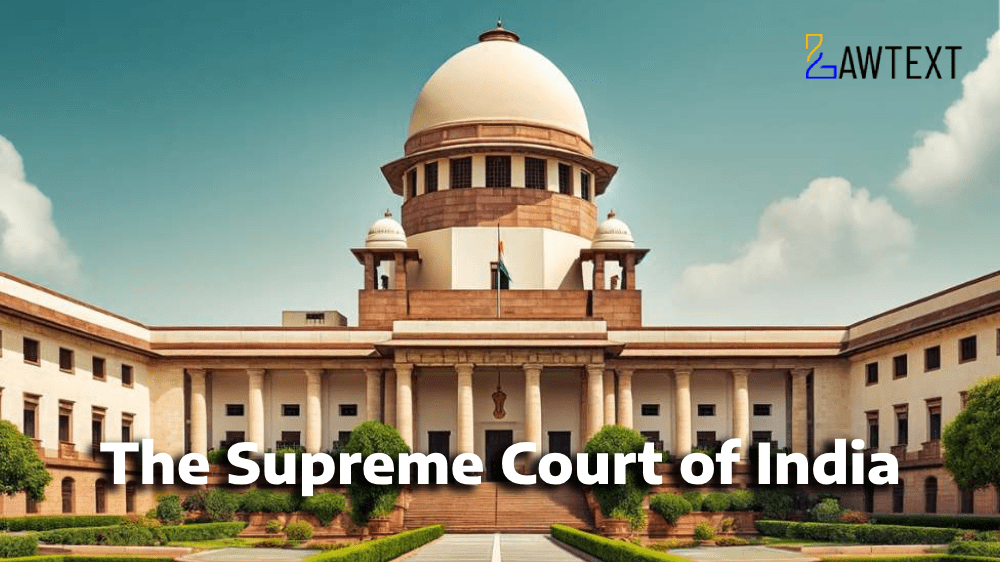

Constitution of India, 1950 – Article 226 – Code of Criminal Procedure, 1973 – Section 482 – Delhi Special Police Establishment Act, 1946 – Section 6 – Prevention of Corruption Act, 1988 – Section 7
Jurisdiction of CBI – Extension of Powers – The Supreme Court held that State consent under Section 6 of DSPE Act is not required for CBI to investigate Central Government employees accused of corruption. – [Para 23, 24]
Bifurcation of Andhra Pradesh – Impact on CBI’s Jurisdiction – Circular Memo No.13665/SR/2014 (26.05.2014) ensured that all laws applicable to undivided Andhra Pradesh continued in both successor States until repealed or modified. The Hyderabad CBI Court retained jurisdiction over Rayalaseema districts, including Kurnool and Anantapur. – [Para 22]
Transfer of Cases – Validity – The Supreme Court ruled that transferring cases from Hyderabad to Vishakhapatnam and later to Kurnool was lawful and did not affect the validity of the investigation. – [Para 7]
CBI’s Nationwide Jurisdiction – The Supreme Court relied on precedent to conclude that CBI has jurisdiction over all Central Government employees regardless of their place of posting. – [Para 26, 27]
Acts and Sections Discussed:
Constitution of India, 1950 – Article 226
Code of Criminal Procedure, 1973 – Section 482
Delhi Special Police Establishment Act, 1946 – Section 6
Prevention of Corruption Act, 1988 – Section 7
Subjects: CBI Jurisdiction – Central Government Employees – State Consent – Delhi Special Police Establishment Act – Prevention of Corruption Act – Andhra Pradesh Bifurcation – Special CBI Court – Kurnool – Hyderabad – Vishakhapatnam
Facts:
Nature of Litigation – The CBI filed appeals challenging the Andhra Pradesh High Court’s decision quashing FIRs against two Central Government employees accused of corruption.
Who is Asking the Court and for What Remedy? – The CBI sought the reinstatement of FIRs and continuation of trials.
Reason for Filing the Case – The High Court quashed the FIRs citing lack of State consent under Section 6 of the DSPE Act, 1946.
What Has Already Been Decided Until Now? – The High Court of Andhra Pradesh quashed the FIRs, ruling that the CBI lacked jurisdiction post-bifurcation of Andhra Pradesh.
Issues:
Whether State consent under DSPE Act is mandatory for investigating Central Government employees. Whether the bifurcation of Andhra Pradesh affected CBI’s jurisdiction over cases originating in Rayalaseema. Whether the transfer of cases from Hyderabad to Vishakhapatnam and later Kurnool was valid. Whether the High Court erred in quashing the FIRs.
Submissions/Arguments:
CBI’s Argument:
General consent for CBI investigations was granted via multiple GOs, including GOMS No.158 (28.11.2014) and GOMS No.67 (01.06.2016).
The Prevention of Corruption Act, 1988 is a Central Act, and its enforcement does not depend on State permissions.
CBI’s jurisdiction extends across India for cases involving Central Government employees.
Respondents’ Argument:
State consent was necessary for FIR registration and investigation.
The bifurcation of Andhra Pradesh affected CBI’s jurisdiction over Rayalaseema.
The transfer of cases did not cure jurisdictional defects.
Decision:
The Supreme Court overturned the High Court’s decision, ruling that State consent under DSPE Act is not required for investigating Central Government employees.
FIRs & chargesheets were reinstated.
The CBI Special Court in Kurnool was directed to proceed with the trials.
Ratio:
CBI’s jurisdiction is nationwide and applies irrespective of the location of the accused if they are Central Government employees.
Precedents such as Kanwal Tanuj v. State of Bihar (2020) and Fertico Marketing (2021) support this ruling.
The continuation of pre-bifurcation laws ensured that CBI retained jurisdiction over cases from Rayalaseema.
Final Order:
Appeals allowed.
High Court’s judgment quashing FIRs is set aside.
CBI Special Court, Kurnool, to resume trial following due process.
Citation: 2025 LawText (SC) (1) 21
Case Number: Criminal Appeal No. of 2024 (@ SLP (Crl.) No. 10737 of 2023) Criminal Appeal No. of 2024 (@ SLP (Crl.) No. 10038 of 2023)
Date of Decision: 2025-01-02
Case Title: The State, Central Bureau of Investigation. Versus A. Satish Kumar & Ors.
Before Judge: (C.T. Ravikumar J. , Rajesh Bindal J. )
Appellant: The State, Central Bureau of Investigation.
Respondent: A. Satish Kumar & Ors.